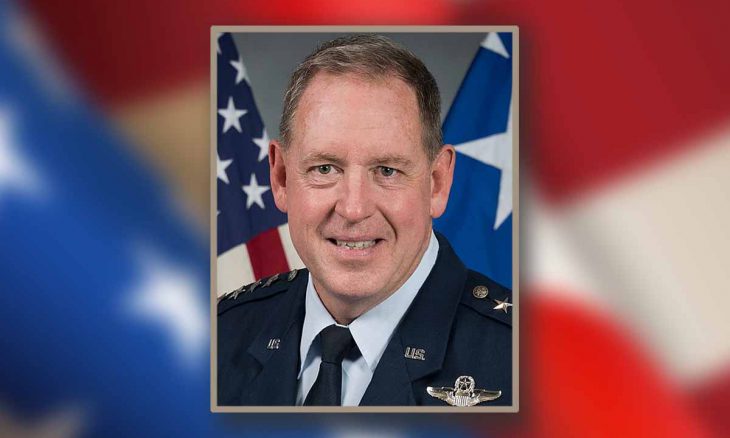General James Hecker
Commander, U.S. Air Forces Europe
James B. Hecker was born in California. He earned an undergraduate degree from the U.S. Air Force Academy. He received a Master of Science from Embry-Riddle Aeronautical University in Daytona Beach, Florida. He has availed himself of numerous other education opportunities afforded him by the military.
A command pilot with more than 3,000 flying hours, Hecker began his pilot training at Sheppard Air Force Base, Texas. He would later serve as an instructor pilot. He was an assistant Director of Operations for the 94th Fighter Squadron, later director of Operations for the 27th Fighter Squadron, and its commander. He commanded the Third Operations Group at Elmendorf AFB, Alaska. He had several assignments in Japan, and was Commander of the 9th Air and Space Expeditionary Task Force, Afghanistan, and Commander, NATO Air Command, Afghanistan.
Hecker is presently commander of U.S. Air Forces in Europe; Commander, Air Forces Africa; Commander, Allied Air Command, headquartered in Germany; and Director, Joint Air Power Competency Center, Germany.
In the News…
General James Hecker, Commander of U.S. Air Forces Europe, said the defense industry has not been able to keep up with the demands of American and allied forces as well as supply the Ukrainian forces for ammunition. He said NATO allies should seriously consider the needs of fighter squadrons and ammunition stockpiles to maintain a strong deterrent in Europe.
“If you look at the U.S. itself — and let’s not just talk about the munitions we recently have given away to Ukraine — but we’re [at] roughly half the number of fighter squadrons that we were when we did Desert Storm,” General Hecker said. “So we don’t have nearly what we had at the heart of the Cold War.“
He continued, “Now you add that we’re giving a lot of munitions away to the Ukrainians — which I think is exactly what we need to do — but now we’re getting dangerously low and sometimes, in some cases even too low, that we don’t have enough. We need to get industry on board to help us out so we can get this going.”
General Hecker said, “I think it’s very important that we kind of take stock of where we are in our weapons state across the 32 nations of NATO, and we’re getting way down compared to where we were.”









